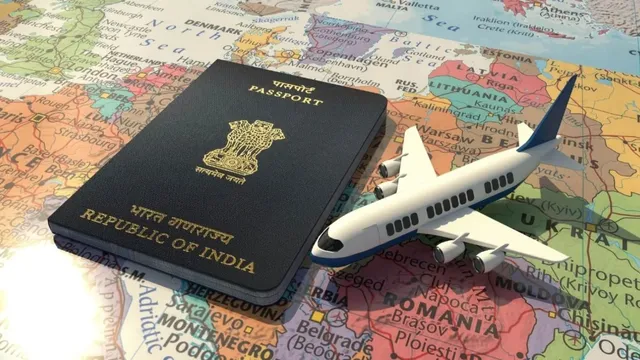The Government of India has officially launched electronic passports (e-passports), marking a major leap toward digital modernization in travel documentation. Designed to enhance security and efficiency, the e-passport initiative aims to simplify immigration procedures and align India with international travel standards.
According to the Ministry of External Affairs, these chip-enabled passports are equipped with an embedded electronic microchip inside the back cover. The chip securely stores personal and biometric data, including fingerprints, facial recognition, and digital signatures. This ensures that the information printed on the passport perfectly matches the encrypted data stored in the chip, making it almost impossible to forge or manipulate.
The e-passport also features a gold biometric symbol on its cover, distinguishing it from traditional passports. This helps airport authorities and border control systems recognize and process the document faster. The embedded chip enables quick scanning and verification, significantly reducing queues at immigration counters.
DON'T MISS
Eligibility and Application Process
Any Indian citizen eligible for a regular passport can apply for an e-passport. Initially, the service is being introduced at select Passport Seva Kendras (PSKs) and Post Office Passport Seva Kendras (POPSKs), with plans to expand across the country in phases.
The application process remains identical to that of a traditional passport:
- Register on the official Passport Seva Portal.
- Fill out the online form and pay the requisite fee.
- Schedule an appointment at the nearest PSK or POPSK.
- Visit the center for biometric verification and photo capture.
After processing, the e-passport with the embedded chip is printed and dispatched to the applicant’s address.
Key Benefits
The introduction of e-passports offers a range of benefits — from enhanced data security to faster global processing. The chip-based verification drastically reduces risks of identity theft, duplication, or forgery, ensuring the highest standards of personal data safety.
Furthermore, e-passports are expected to speed up immigration clearance, improving the overall travel experience for Indian citizens abroad. Experts suggest that this development will strengthen India’s position in global mobility rankings.
As the government gradually scales up production, citizens are advised to verify whether their regional passport centers have started issuing e-passports before applying.
This digital leap marks the beginning of a smart, secure, and globally recognized travel identity system for Indian citizens — paving the way for seamless international journeys in the coming years.
